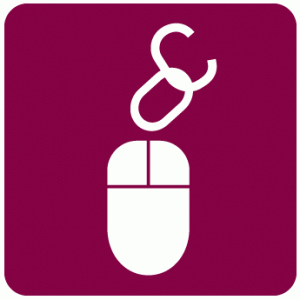The Internet is the tool most feared today by the elites, the media and by the power. It empowers those who otherwise would remain forgotten, oppressed. It is a weapon that gives ammo to those who are protesting for justice, equality and freedom and that shakes the structures of the state – and of companies – which sees no other choice but to censor.
– Raphael Tsavkko Garcia Mpiblaogy Breziliana sady mpanoratra anivon'ny Global Voices
Androany no ankalazaina ny Andro iraisam-pirenena anoherana ny famehezam-bava eto amin’ny Aterineto, izay nahita masoandro vokatry ny fivoizan'ny fikambanana tsy miankina amin’ny fanjakana “Reporters sans sans frontières” (RSF) izao solombavan'ireo ireo mpanao gazety sady mpivoy ny fahalaham-pitenenana manerana izao tontolo izao mba hahatonga ny Aterineto ho tokana sady malalaka hoan'ny rehetra. Dia ho amin'ilay andro iray andrandraintsika izay ahatsapan'ireo mpampiasa rehetra tena mikasika ny famehezam-bava izay misy eto anivon'ny Aterineto, famehezam-bava izay zavatra fantatr'ireo mpanoratra anivon'ny Global Voices loatra.
Anisan'ireny mpiblaogy ireny i Rtoa Lina Ben Mhenni izay sady mpanoratra koa anivon'ny GV. Any Tonizìa no fonenany, firenena izay anisan'ireo kilasian'ny RSF ho “fahavalon'ny Aterineto” efa taona maro mifanesy izao. Toy izao no nosoratany eo amin'ny blaoginy:
Do you know how does it feel to be censored?
Well, I do !
Indeed, I am experiencing this DISGUSTING feeling since February, 24th 2010. That day, back home from work, I was so disappointed when I discovered the horrible “Error 404″ message- a message that stands for a censored web page in my country- when I tried to log in my Facebook and my blog.
Satria raha izaho dia mahafantatra loatra
Efa hatramin'ny faha-24-n'ny volana Febroary 2010 indrindra aho no misedra izany zavatra maharikoriko izany. Tamin'io andro io, raha nody avy tany am-piasana aho dia tena kivy raha nahatsikaritra izato fanambarana “Diso 404″ – io no fambara aty amin'ny tany ipetrahako fa tsy mahazo alalana vakiana aty ny pejy iray – raha nanandrana niditra tamin'ny pejiko Facebook sy ny blaogiko.
Diego Casaes, mpiblaogy Breziliana sady mpanoratra anivon'ny GV dia nanapariaka lahatsoratra mikasika io lohahevitra io izay mifandrohy amin'ireo mpiblaogy maro manerana izaot ontolo izao sady mampiharihary ireo tetikasa maro izay tohanan'ny Global Voices, manolotra soso-kevitra ao amin'ny blaoginy mikasika izay heveriny ho tokony fihetsik’ ireo governemanta miatrika ny Aterineto:
I also think that governments should be encouraged not to regulate, but rather give the proper infra-structure and educate people on how to use the web. This way, citizens will trust the government and be able to freely express themselves on the web: this is of utmost importance! On this matter, I also think companies should become more aware of their influence in society. Google’s decision not to regulate search results in China after having some Human Rights activists’ accounts hacked (follow this link for more information) is a demonstration of how companies should position themselves.

Andro iraisam-pirenena anoherana ny famehezam-bava eto amin’ny Aterineto androany
Ao amin'ny blaoginy, Hisham izay mpanoratra Maraokana anivon'ny GV dia manolotra valiny ny fanontaniana hoe “Inona no dikan'ny hoe manohitra ny famehezam-bava eto amin'ny tontolon'ny Aterineto?”:
In my humble opinion it means protecting what in some countries has become the last frontier of freedom of expression, which is at the core of all other freedoms; the last place where people can still escape restrictions of oppressive regimes. It means using blogs, videos, pictures, social networks, podcasts and the innumerable tools available online to mobilize people around a cause, expose rights abuses, communicate local struggles and causes to the rest of the world, give voices to the disenfranchised and the minority groups, hold governments accountable, investigate and reveal the truth.
Tsy nokilasiana ho isan'ireo “Fahavalon'ny Aterineto” i Pakistana, na dia izany aza dia matetika mafy fianjady amin'ireo mpiblaogy monina any ny famehezam-bava ataon'ny fanjakana. Avy any no ihavian'n'i Awab Alvi writes mpanoratra anivon'ny GV advocacy:
It is my position that the internet should be free and open to the People of Pakistan allowing the people to harness this boundless platform for creating new spaces for exchanging ideas and information, the Internet should be considered as a force for freedom and looked upon as a tool for progressing the growth of a struggling nation.
Tsy mba mametraka famehezam-bava i Libanona, anefa tsy manakana an-dRtoa Layal Al Khatib izany hanambra ny heviny mikasika ity lohahevitra ity ao amin'ny blaoginy. Toy izao no fandraisany izany hoe manohitra ny famehezam-bava eto amin'ny tontolon'ny Aterineto izany:
Freedom! Our most basic right as human beings! We need to be free to express our feelings, thoughts and opinions with no fear of anyone! Censorship by other parties usually ends up with self-censorship, you’ll end up imprisoning yourself if they don’t do it themselves! Which is more dangerous to me..
Ny namana Tomavana izay mpiblaogy sy mpivoy ny dikateny anivon'ny GV Malagasy dia manamarika fa any Madagasikara dia tsy voatery ho izay famehezam-bava loatra aza no olana fa ny fampiasana ny fahazahoana fahana Aterineto, tsahiviny antsika ary [FR] fa tsy ny famehezam-bava ihany no sakantsakana amin'ny fahalalaham-pitenenana:
Quant à évoquer cette liberté d’expression à Madagascar, c’est invariablement buter à la réalité des manques de moyens communs aux pays en développement […] De plus, avec un taux d'utilisation d'internet de moins de 5% de la population, il s'agit plus d'un avantage supplémentaire que monnaie une minorité de privilégié plutôt que de véritable droit. Je formule cependant le vœu que ces dérives ne puissent servir de prétexte à un musèlement ni une censure d'Internet à Madagascar mais qu'au contraire son accès soit facilité pour le plus grand nombre notamment par une amélioration de l'offre internet accompagnée à une baisse des coûts de connexions.







1 hevitra